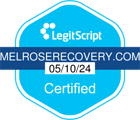Guide for How To Stage an Intervention
It is common for family members, partners, and friends of addicted individuals to feel helpless, frustrated, and even angry at times. However, it is important to remember that addiction is a disease and that the person struggling with it needs support and understanding rather than judgment.
Before we delve into coping strategies, it is essential to have a basic understanding of addiction. Substance use disorder (SUD) is a chronic disease characterized by uncontrollable drug seeking and use, despite the harmful consequences it may have on an individual’s life. It changes the brain’s structure and function, leading to compulsive behaviors that are difficult to stop.
It is crucial to understand that addiction is not a choice, and the person struggling with it needs professional help and support to overcome it. It can also be helpful to educate yourself about the signs and symptoms of addiction, common triggers, and available treatment options.
What is Addiction?
Addiction is a chronic brain disorder that involves compulsive engagement in rewarding stimuli despite negative consequences. It is characterized by the inability to control or stop engaging in a particular behavior, despite its harmful effects on one’s life.
Identifying Common Signs of Addiction
Identifying signs of addiction can be challenging for several reasons, particularly because addiction is a complex disease that affects individuals differently.
Some key factors that contribute to the difficulty in recognizing addiction include varying symptoms (depending on the type of addiction and duration of substance use), co-occurring mental health disorders (which can make it difficult to recognize the presence of substance abuse), functional behavior (since some individuals can continue to hold a job and maintain other responsibilities despite a problem with alcohol or drug abuse), and the gradual progression of substance abuse problems.
Recognizing addiction requires a nuanced understanding of its signs and an awareness of the individual’s baseline behavior and personality. It’s important for families, friends, and professionals to educate themselves on the subtler signs of addiction and to approach the topic with empathy, openness, and a readiness to support the individual in seeking help.
Still, it is possible to identify the presence of a substance use disorder in the life of someone you love. Here are some common signs and symptoms of addiction to look out for:
- Increased tolerance to the addictive substance or behavior, requiring more to achieve the desired effect
- Withdrawal symptoms occur when attempts are made to stop using the substance or engaging in the behavior
- Difficulty controlling urges and cravings for the substance or behavior
- Neglecting responsibilities and relationships to use or engage in addictive behavior
- Continued use despite negative consequences such as financial problems, legal issues, and health complications
- Changes in behavior and mood, including irritability, restlessness, and secrecy
If you have noticed any of these behaviors and issues in the life of someone you love, it may mean that they are suffering from addiction. But there is hope for your loved one here at Melrose Recovery. Just reach out to our team to learn how we can help.
The Dos and Don’ts of Living with an Addict
When living with someone who suffers from drug or alcohol addiction, it’s important to know what you should and shouldn’t do. Understanding the intricacies of helping someone who has a substance use disorder can be quite difficult, especially if this person is someone you truly care about and love.
There is a fine line between supporting your struggling loved one and enabling them. This list of dos and don’ts, while not comprehensive or always applicable, can be helpful in your situation.

- Educate Yourself: Understand addiction as a complex disease rather than a moral failing. This knowledge will foster empathy and patience in dealing with your loved one.
- Set Healthy Boundaries: Clearly communicate your limits in a supportive, non-confrontational way. Boundaries help protect your well-being and can encourage your loved one to take responsibility for their actions.
- Encourage Treatment: Gently promote the idea of professional help, like the services offered at Melrose Recovery, emphasizing the benefits of seeking treatment.
- Support Recovery: Be there for your loved one by attending meetings with them if they’re comfortable, or participate in family therapy sessions to better understand how you can support their recovery journey.
- Take Care of Yourself: Living with an addict can be emotionally taxing. Prioritize your health and well-being by seeking support for yourself, possibly through counseling or support groups for families of addicts.
- Enable the Addiction: Avoid behaviors that make it easier for your loved one to continue their substance use, such as lending money that can be used for drugs or alcohol, or covering up for their actions.
- Attempt to Control Their Every Move: While it’s important to encourage positive choices, trying to control their decisions can lead to resentment and resistance.
- Neglect Open Communication: Avoiding tough conversations can lead to misunderstanding and distance. It’s crucial to keep open lines of communication, even when topics are difficult to discuss.
- Ignore Your Needs: Sacrificing your own health and well-being doesn’t help your loved one in the long term. Remember, you can’t pour from an empty cup.
- Blame Yourself: It’s natural to question what you could have done differently, but addiction is a result of many factors. Blaming yourself only adds unnecessary guilt and stress.
By keeping these dos and don’ts in mind, families can create a more supportive environment that encourages recovery while also taking care of their own well-being. Melrose Recovery is dedicated to guiding struggling individuals and their families on the path to recovery, recognizing the importance of a balanced approach to this challenging situation.
Your Transformation Start Here
How Does Addiction Affect a Household?
Addiction can have a significant impact on the entire household. Some of the ways it may affect a household include:
Addiction can lead to job loss, legal issues, and other financial problems that can put stress on the family’s finances.
Addicts may have unpredictable behaviors or habits, which can disrupt the household’s daily routines and cause tension.
Living with an addict can be emotionally draining and may lead to feelings of anger, guilt, and resentment.
Addiction can strain relationships within the household, as well as with friends and extended family members.
In some cases, addiction can lead to dangerous or illegal behavior that puts the safety of others in the household at risk.
Treatment Programs at Melrose Recovery
Here at Melrose Recovery, we offer various types of addiction treatment programs. We understand that every case of addiction is unique and there is no one-size-fits-all approach to substance abuse treatment. This is why we offer comprehensive, compassionate, and individualized rehab services to help our clients find the hope and healing they need.
Our detox treatment program in Los Angeles, California is the process of removing toxins from the body that have accumulated due to substance abuse. It is often the first step in addiction treatment and involves supervised medical care and support to manage withdrawal symptoms.
Inpatient addiction treatment in Los Angeles, California involves living at a treatment facility for a designated period while receiving intensive therapy and support. This option is best for those with severe addiction or co-occurring mental health disorders.
Our aftercare program in Los Angeles, California is a crucial component of ongoing recovery after completing treatment. It includes continued therapy and support for our clients.

How to Get Help for An Addict at Melrose Recovery in LA
Living with an addict can be overwhelming and may require professional help. If your loved one is open to it, consider seeking counseling or therapy together to address any underlying issues and improve communication.
Additionally, there are support groups specifically for family members and friends of addicts, such as Al-Anon and Nar-Anon. These groups provide a safe space for sharing experiences, gaining support and advice from others in similar situations, and learning healthy coping mechanisms.
Melrose Recovery is a treatment center that specializes in helping individuals struggling with addiction. Our programs are tailored to each individual’s needs and include evidence-based therapies, support groups, and holistic approaches. We also offer family therapy and support for loved ones of addicts. If you or someone you know is struggling with addiction, contact us today for help.









